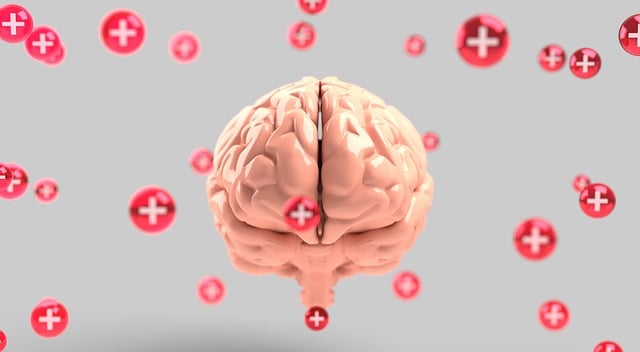Castle Rock Domestic Violence Therapy emphasizes Emotional Intelligence (EQ) as a powerful tool for building and maintaining healthy relationships in today's stressful world. They offer resources like the Mental Wellness Podcast Series and Public Awareness Campaigns to promote EQ, stress reduction techniques, and self-awareness through mindfulness meditation and mental health education. By enhancing empathy through active listening and journaling, and improving communication skills, they help individuals navigate emotional challenges, resolve conflicts, and strengthen relationships, ultimately contributing to improved mental wellness.
Emotional intelligence (EI) is a powerful tool for cultivating healthy relationships and fostering a sense of well-being. At Castle Rock Domestic Violence Therapy, we recognize that understanding and managing emotions is crucial for personal growth and conflict resolution. This article explores the various facets of EI development, from recognizing emotional ignorance in daily life to enhancing self-awareness and empathy. By delving into effective communication strategies, we aim to equip individuals with the skills needed to navigate relationships more harmoniously, mirroring a symphony of understanding in their lives.
- Understanding Emotional Intelligence: The Foundation of Healthy Relationships
- Unmasking Emotional Ignorance: Recognizing the Signs in Everyday Life
- Nurturing Self-Awareness: A Key Component of Emotional Intelligence Development
- Enhancing Empathy: Walking in Another's Shoes to Build Stronger Connections
- Effective Communication Strategies: Bridging Gaps and Fostering Understanding
Understanding Emotional Intelligence: The Foundation of Healthy Relationships

Emotional intelligence (EQ) is a cornerstone of healthy relationships, both personal and professional. It involves recognizing, understanding, managing, and effectively utilizing one’s own emotions and the emotions of those around them. At Castle Rock Domestic Violence Therapy, we emphasize EQ as a foundational component in fostering positive connections and resolving conflicts. By cultivating emotional intelligence, individuals can improve their ability to empathize, communicate openly, and resolve disagreements peacefully.
In today’s fast-paced world, where stress and pressure often contribute to poor mood management, developing EQ becomes even more crucial. Our Mental Wellness Podcast Series Production offers valuable insights and strategies for enhancing emotional well-being. Public Awareness Campaigns Development focused on promoting understanding of EQ can significantly impact societal interactions, encouraging folks to navigate relationships with greater sensitivity and awareness. Ultimately, investing in emotional intelligence is an investment in stronger, healthier bonds that contribute to overall mental wellness.
Unmasking Emotional Ignorance: Recognizing the Signs in Everyday Life

Many individuals navigate life with a blind spot when it comes to their emotions. This emotional ignorance can manifest in various subtle ways, often going unnoticed by both the person experiencing it and those around them. In everyday interactions, signs of emotional blindness might include difficulty expressing feelings, an inability to empathize with others’ emotions, or reacting to situations with excessive anger or impulsivity. These behaviors can be particularly detrimental in close relationships, leading to misunderstandings and conflicts that may even escalate into issues like domestic violence, as seen in cases managed by Castle Rock Domestic Violence Therapy.
Understanding the roots of emotional ignorance is crucial for effective risk management planning among mental health professionals. Recognizing these signs early on not only aids in better patient care but also promotes healthier personal relationships. By integrating emotional intelligence and stress reduction methods into their practices, therapists can empower individuals to become more aware of their emotions, fostering a safer and more supportive environment for all parties involved.
Nurturing Self-Awareness: A Key Component of Emotional Intelligence Development

Nurturing self-awareness is a fundamental step in building emotional intelligence and can have a profound impact on one’s overall well-being, especially when supported by Castle Rock Domestic Violence Therapy. This involves developing a deep understanding of your emotions, strengths, weaknesses, and how they influence your thoughts and behaviors. By engaging in regular reflection and introspection, individuals can begin to recognize their emotional triggers and patterns, enabling them to make more thoughtful decisions.
Self-awareness allows for better emotional regulation, which is crucial for managing stress and conflicts effectively. Through mindfulness meditation and other mental health education programs designed to enhance self-awareness, people can learn to identify and control their emotional responses, fostering healthier relationships and improving overall mental health. These practices encourage individuals to embrace their emotions as valuable data, helping them navigate life’s challenges with greater resilience and empathy.
Enhancing Empathy: Walking in Another's Shoes to Build Stronger Connections

Enhancing empathy is a powerful tool for building stronger connections with others, and it starts by walking in someone else’s shoes. This simple yet profound act involves putting yourself in another person’s position to understand their feelings, experiences, and perspectives. At Castle Rock Domestic Violence Therapy, we emphasize the importance of empathy as a cornerstone of emotional intelligence development. By practicing active listening and truly connecting with others on an emotional level, individuals can foster deeper relationships and create a more supportive environment for everyone involved.
This process encourages mental wellness by promoting self-care routine development for better mental health. Engaging in regular mental wellness journaling exercises guidance can further strengthen this skill. Reflecting on your own experiences and emotions, as well as those of others, allows you to build a richer understanding of the human condition. This increased empathy not only benefits interpersonal relationships but also contributes to overall mental wellness, creating a positive feedback loop that reinforces emotional intelligence growth.
Effective Communication Strategies: Bridging Gaps and Fostering Understanding

Effective communication is a cornerstone of emotional intelligence and plays a pivotal role in fostering healthy relationships and promoting emotional well-being. At Castle Rock Domestic Violence Therapy, we understand that bridging gaps in understanding can be transformative for individuals and communities. By adopting strategies that emphasize active listening, empathy, and clarity, people can navigate complex emotions and challenges more effectively.
This involves learning to communicate not just with words but also through non-verbal cues and a genuine interest in understanding the other person’s perspective. Promoting positive thinking and encouraging open dialogue creates a safe space for emotional healing processes to begin. These techniques are invaluable tools that help individuals build stronger connections, resolve conflicts, and ultimately enhance their overall emotional intelligence.
Emotional intelligence is a powerful tool for building healthy, fulfilling relationships, as highlighted in this exploration of various aspects at Castle Rock Domestic Violence Therapy. By understanding and managing our emotions, recognizing emotional ignorance, nurturing self-awareness, enhancing empathy, and employing effective communication strategies, we can create stronger connections and navigate life’s challenges with greater ease. These skills are essential for personal growth and fostering supportive relationships, ultimately leading to improved mental well-being and a more compassionate society.














